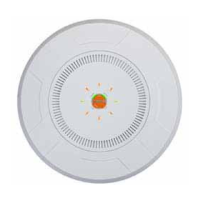Wireless Access Point
32 Installing the Wireless AP
Planning Your Installation
This section provides guidelines and examples to help you plan your Xirrus
Wireless AP deployment to achieve the best overall coverage and performance.
We recommend you conduct a site survey to determine the best location and
settings for each AP you install.
“General Deployment Considerations” on page 32
“Coverage and Capacity Planning” on page 34
“About IEEE 802.11ac” on page 42
“Failover Planning” on page 52
“Power Planning” on page 55
“Security Planning” on page 56
“Port Requirements” on page 58
“Network Management Planning” on page 62
“WDS Planning” on page 63
“Common Deployment Options” on page 66
General Deployment Considerations
The Array’s unique multi-radio architecture generates 360 degrees of sectored
high-gain 802.11a/b/g/n/ac coverage that provides extended range. (Note that
XR-500/600 Series radios are omni-directional rather than sectored.) The number,
thickness and location of walls, ceilings or other objects that the wireless signals
must pass through may affect the range. Typical ranges vary depending on the
types of materials and background RF (radio frequency) noise at your location. To
maximize wireless range, follow these basic guidelines:
1. Keep the number of walls and ceilings between the AP and your
receiving devices to a minimum — each wall or ceiling can reduce the
wireless range from between 3 and 90 feet (1 to 30 meters). Position your
devices so that the number of walls or ceilings is minimized.
For optimal placement of APs, we recommend that a site survey be
performed by a qualified Xirrus partner.

